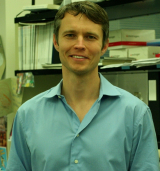Understanding and Preventing Healthy Tissue Damage in Pediatric Cancer Patients

Background
Treatment of human cancers with chemotherapy or radiation has led to the successful eradication of malignancies in millions of patients, yet the cell death induced in healthy tissues drastically limits the use of these crucial therapies. This is especially true in pediatric patients who experience more damaging side effects from treatment. For example, children with many types of cancers are commonly treated with doxorubicin, which is an extremely effective anti-cancer agent and cures many patients. However, children experience higher levels of heart toxicity from doxorubicin treatment than adults for reasons that are unknown. In addition, brain irradiation is a very effective treatment for many childhood brain tumors, yet it also causes cell death in healthy brain cells, frequently resulting in a devastating loss of intelligence which severely reduces quality of life. Adults treated with brain irradiation exhibit dramatically less toxicity than children but the basis for this difference in sensitivity is unknown. Using BH3 profiling, an innovative tool to measure how close cells are to the threshold of cell death, we recently observed novel and striking differences in the how apoptosis is regulated in vital tissues including the brain and heart.
Project Goal
Within this project, we plan to first develop a comprehensive understanding of how differential regulation of cell death affects cell fate in response to damage or stress in children. We will then identify the how the body controls these pathways. These studies may be leveraged to develop treatment strategies and agents that will reduce toxicity and improve patient's lives.
2016 Project Update
The second year of our ALSF-funded project examining how the regulation of cell death (apoptosis) in healthy tissues affects sensitivity to damage or stress was extremely productive and successful. We had initially discovered that cell death pathways (which are activated by sources of damage or stress) are regulated differently in children versus adults, which results in pediatric cancer patients being especially at risk of developing side effects from any therapy that induces genotoxic damage (damage to the DNA of cells). These genotoxic stressors include common cancer therapies such as Adriamycin (used in a variety of hematological and other malignancies) and ionizing radiation (frequently used to treat solid tumors including pediatric brain tumors). We went on to identify the proteins that are expressed differently in children versus adults to understand what causes this difference in damage responses. We have also been able to study this directly in humans by examining healthy brain tissues from children and adults that have undergone brain surgery to remove seizure-causing areas in their brains. The healthy human brain tissues that we have received have directly confirmed our discoveries in mouse tissues. In the past year, we have built on these earlier discoveries by identifying the upstream factor that controls the expression of these critical apoptosis-regulating proteins in healthy tissues. The upstream factor is a well-characterized transcription factor that coordinates many pathways during cellular growth and division and has been previously linked to apoptosis. Using four different mouse models, we showed that this factor actively drives the expression of the pro-apoptotic proteins in pediatric tissues that make them hypersensitive to damage and stress. Furthermore, we found that forcing this factor to be expressed in adult tissues was sufficient to upregulate the expression of these same pro-apoptotic proteins, suggesting that the sensitivity of cells to pro-death stimuli is directly tied to cellular proliferation. We have added these findings to our manuscript, which is currently under revision and we hope to publish our exciting findings soon.
"We are extremely grateful that the Alex's Lemonade Stand Foundation has chosen to fund this Young Investigator Award application. We look forward to not only successfully completing the aims we proposed but also establishing a strong partnership with the foundation for the future. Thank you for accelerating pediatric cancer research and supporting innovative proposals that may dramatically improve the lives of children with cancer." ~Kristopher Sarosiek, PhD

